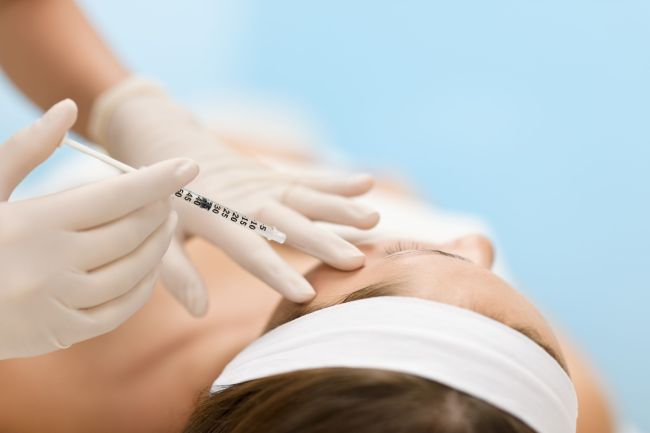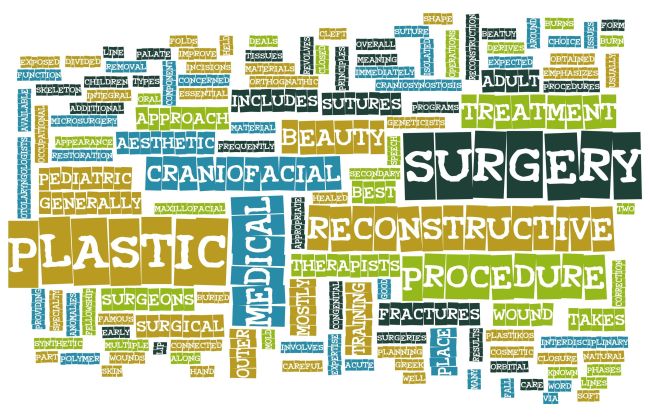Last year, Lee Min-ji (not her real name) decided to undergo fat grafting to her forehead and cheeks at a cosmetic surgery hospital in Seoul.
Two months later, she began to feel palpable bumps in the areas where she had received surgery. The cause was calcification -- a hardening of the skin tissue that sometimes occurs when high amounts of fat are concentrated in one area.
As she was neither informed about the details of the surgical procedure nor its potential side effects prior to her surgery, Lee demanded a refund of 4 million won ($3,400) in surgical fees from the hospital.
Yet the hospital refused to compensate her on grounds that it does not hold responsibility since the doctor who had performed the surgery no longer worked there.
Two months later, she began to feel palpable bumps in the areas where she had received surgery. The cause was calcification -- a hardening of the skin tissue that sometimes occurs when high amounts of fat are concentrated in one area.
As she was neither informed about the details of the surgical procedure nor its potential side effects prior to her surgery, Lee demanded a refund of 4 million won ($3,400) in surgical fees from the hospital.
Yet the hospital refused to compensate her on grounds that it does not hold responsibility since the doctor who had performed the surgery no longer worked there.

Lee is just one among several in South Korea -- where 20 percent of the female population has had plastic surgery at least once in their lives -- who are seeking compensation for the unforeseen side effects of plastic surgery and related disputes.
As the winter vacation season -- a peak time for plastic surgery -- is underway, the Fair Trade Commission has issued a “consumer warning” urging those seeking cosmetic procedures to be mindful of the all-too-common problems linked to surgery, including serious side effects, denied refunds and misleading advertising.
“Cosmetic surgery hospitals hold various promotional and discount events, including those for students who have finished their college entrance exams, during the winter vacation season,” said the FTC.
“Around 30 percent of all plastic surgery hospital-related consultations to the FTC’s customer consultation center were received during the peak period (January, February and December) in 2014.”
In a signal to exercise caution, such complaints have also been steadily rising -- from 3,740 cases in 2012 to 4,806 in 2013, 5,005 in 2014 and 3,848 cases and counting as of October of this year, according to the commission.
As plastic surgery providers are geared to step up their marketing efforts and launch alluring promotional events in the coming months, the antitrust agency urged the public to check potential risks of hospital policies in detail prior to surgery to avoid potential damages.
The most common disputes emerge when hospitals secure customers by boasting the benefits of surgery without mentioning potential side effects, and later evade responsibility when postsurgical problems emerge, the FTC said.
Moreover, some hospitals refuse to grant refunds even if a consumer has legitimate grounds for canceling a cosmetic surgery, such as a proven allergic reaction to certain substances or being told that a different doctor than the one they had consulted with would be carrying out a surgery.
Therefore, the FTC has also urged those seeking surgery to closely examine the hospital’s refund and aftercare policy prior to making a deposit or undergoing a procedure.
Even those wanting to cancel a surgery due to a simple change of mind can receive partial refunds, according to FTC regulations effective in such a case where no specific guidelines regarding such processes have been established between a hospital and patient.

How to seek help after an operation goes wrong
For patients seeking compensation from a hospital after suffering injury or damage from a cosmetic surgical procedure are two main institutions which can mediate the process.
The Korea Medical Dispute Mediation and Arbitration Agency is available by calling (02) 1670-3545 or visiting www.k-medi.or.kr, while the Korea Consumer Agency can be reached by dialing 1372 or visiting www.kca.go.kr.
By protocol, the process requires preparing a number of documents and evidence that can lay out the responsibility leveraged on the patient and the doctor, filing an arbitration request and undergoing legal evaluation, after which the scale of compensation is determined.
Eyeing the rising number of foreigners who suffer damages after undergoing cosmetic surgery and other medical procedures in Korea, both the arbitration agency and the KCA offer consultation services in English, Chinese and other languages in conjunction with the Ministry of Justice.
“The registration process is the same for both locals and foreigners. But we offer direct consultations in English and Chinese, as well as translated services in a number of other languages,” said a spokesperson for the medical dispute mediation agency.
In partnership with the Korea Tourism Organization, the KCA offers phone consultation services accompanied by a translator to foreigners via calling KCA at (043) 880-5400 or KTO at 1330.
Given these institutions do not tend to receive many inquiries or arbitration requests from foreigners, the mediation process will likely take longer and be more cumbersome to get through.
“The number of foreigners who seek our services is lower than expected,” said the arbitration agency official, stating that the body had received only 80 cases since its services began in 2011, though the numbers are continuously rising each year.
By Sohn Ji-young (jys@heraldcorp.com)




![[Herald Interview] 'Amid aging population, Korea to invite more young professionals from overseas'](http://res.heraldm.com/phpwas/restmb_idxmake.php?idx=644&simg=/content/image/2024/04/24/20240424050844_0.jpg&u=20240424200058)











![[KH Explains] Korean shipbuilding stocks rally: Real growth or bubble?](http://res.heraldm.com/phpwas/restmb_idxmake.php?idx=652&simg=/content/image/2024/04/25/20240425050656_0.jpg&u=)

